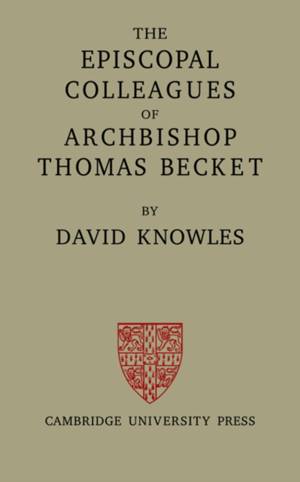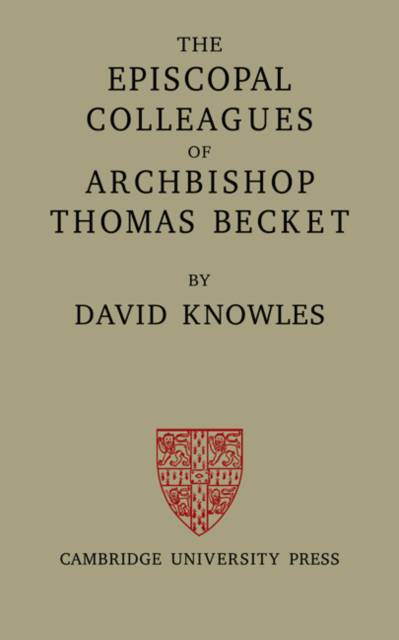
- Afhalen na 1 uur in een winkel met voorraad
- Gratis thuislevering in België vanaf € 30
- Ruim aanbod met 7 miljoen producten
- Afhalen na 1 uur in een winkel met voorraad
- Gratis thuislevering in België vanaf € 30
- Ruim aanbod met 7 miljoen producten
Zoeken
The Episcopal Colleagues of Archbishop Thomas Becket
Being the Ford Lectures Delivered in the University of Oxford in Hilary Term 1949
David Knowles
Paperback | Engels
€ 60,95
+ 121 punten
Omschrijving
First published in 1951, Professor Knowles introduces his subject with these words: 'On three decisive occasions at least - at Clarendon and Northampton in 1164, and for a third time in the autumn of 1169 - the bishops were called upon as a body - at Clarendon in association with the Archbishop, at Northampton and in 1169 in dissociation from him - to take their stand at a crisis of policy. Had they resolutely and unanimously opposed the King in 1164, or as unanimously fallen in with his wishes in 1169, the course of English church history would have been notably different.... Concentration on the actions and words of the Archbishop alone, and the virtual relegation of his colleagues to the position of a chorus, if not of a conspiracy, has helped, in almost every account, to throw his figure out of historical perspective. It is only when we watch the attitude and consider the opinions of the other bishops, both before, during, and after the great meetings of 1163-4, that we can see how many elements of the controversy, and how many of the views expressed, were the common property of all, or at least of most, of the school-trained ecclesiastics of the day, and how many were peculiar to Archbishop Thomas.'
Specificaties
Betrokkenen
- Auteur(s):
- Uitgeverij:
Inhoud
- Aantal bladzijden:
- 204
- Taal:
- Engels
Eigenschappen
- Productcode (EAN):
- 9780521079679
- Verschijningsdatum:
- 1/09/2008
- Uitvoering:
- Paperback
- Formaat:
- Trade paperback (VS)
- Afmetingen:
- 127 mm x 203 mm
- Gewicht:
- 226 g

Alleen bij Standaard Boekhandel
+ 121 punten op je klantenkaart van Standaard Boekhandel
Beoordelingen
We publiceren alleen reviews die voldoen aan de voorwaarden voor reviews. Bekijk onze voorwaarden voor reviews.











